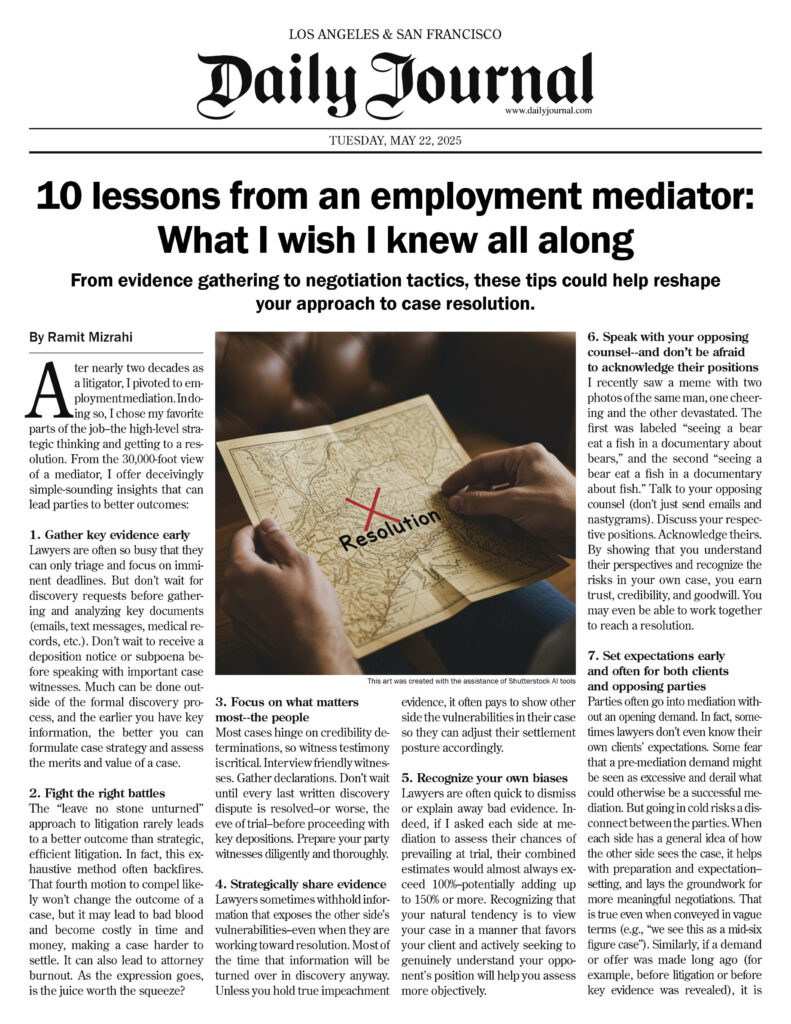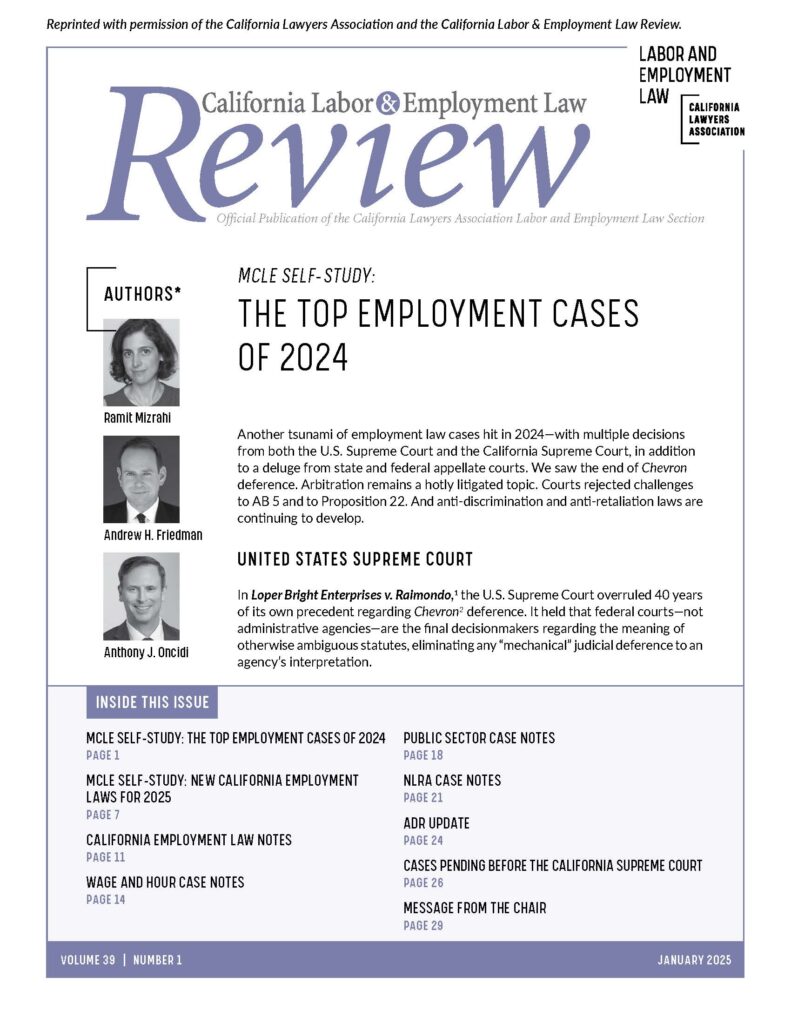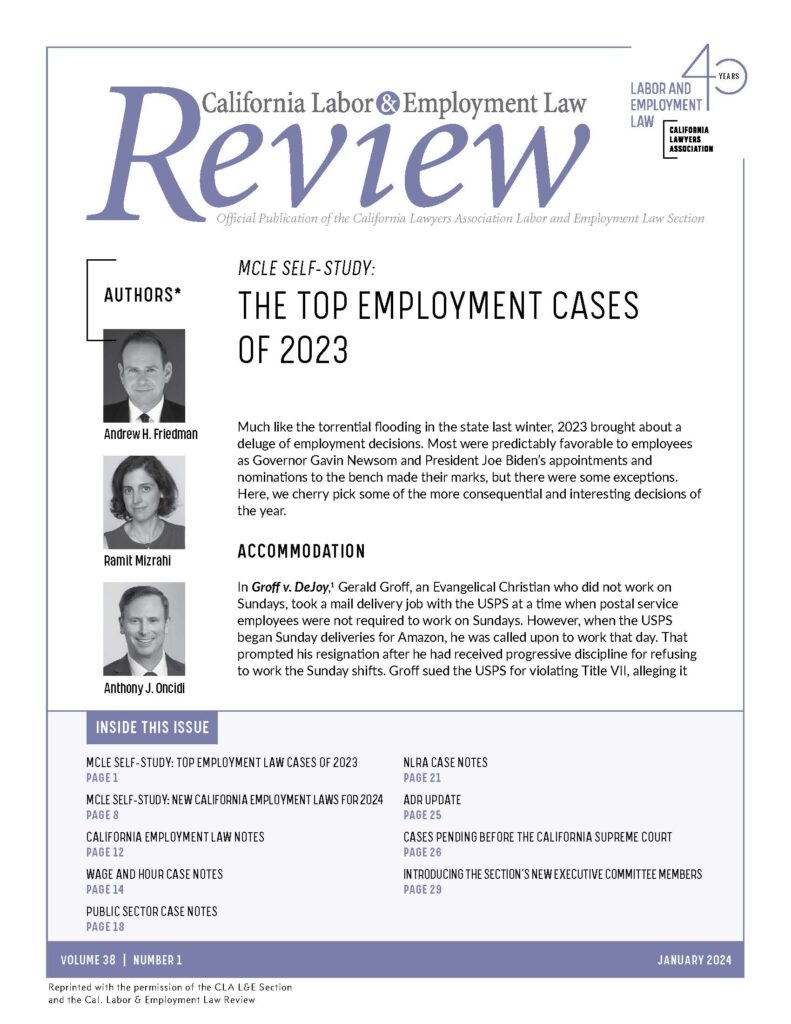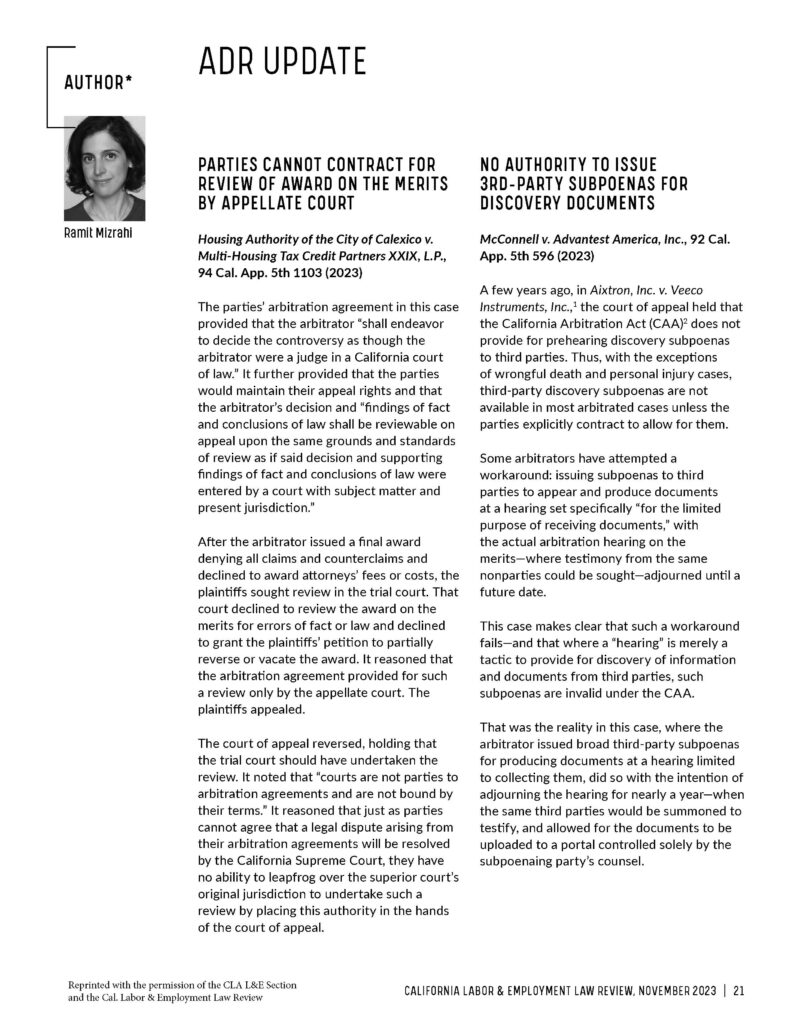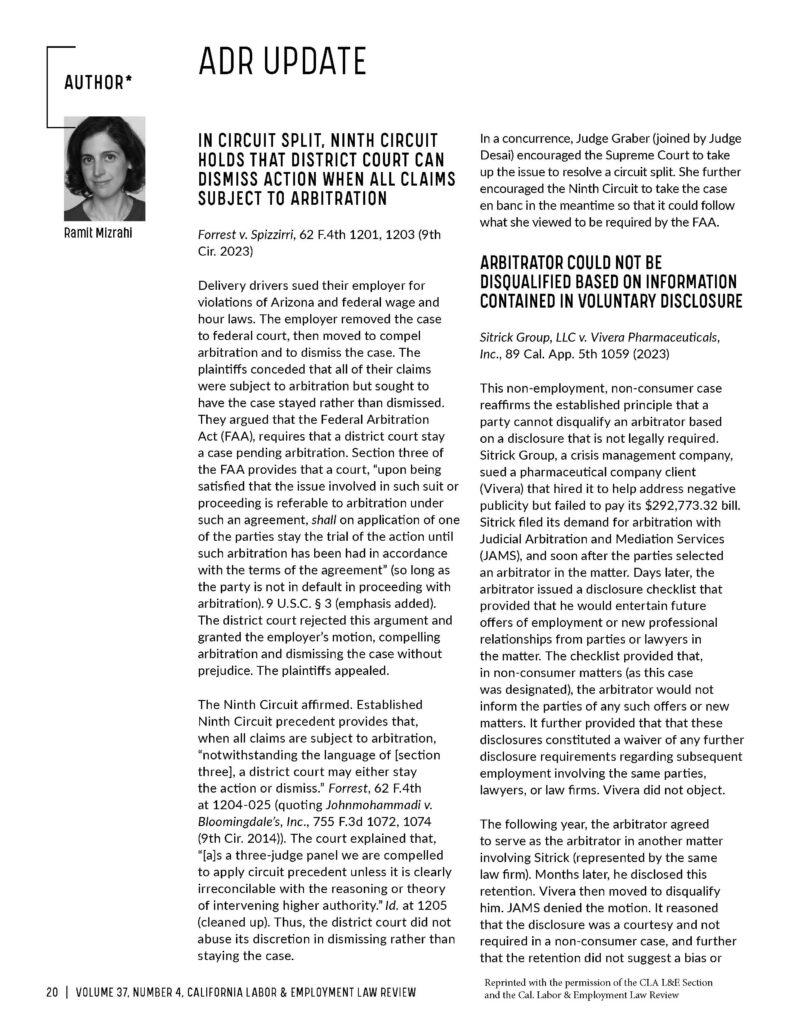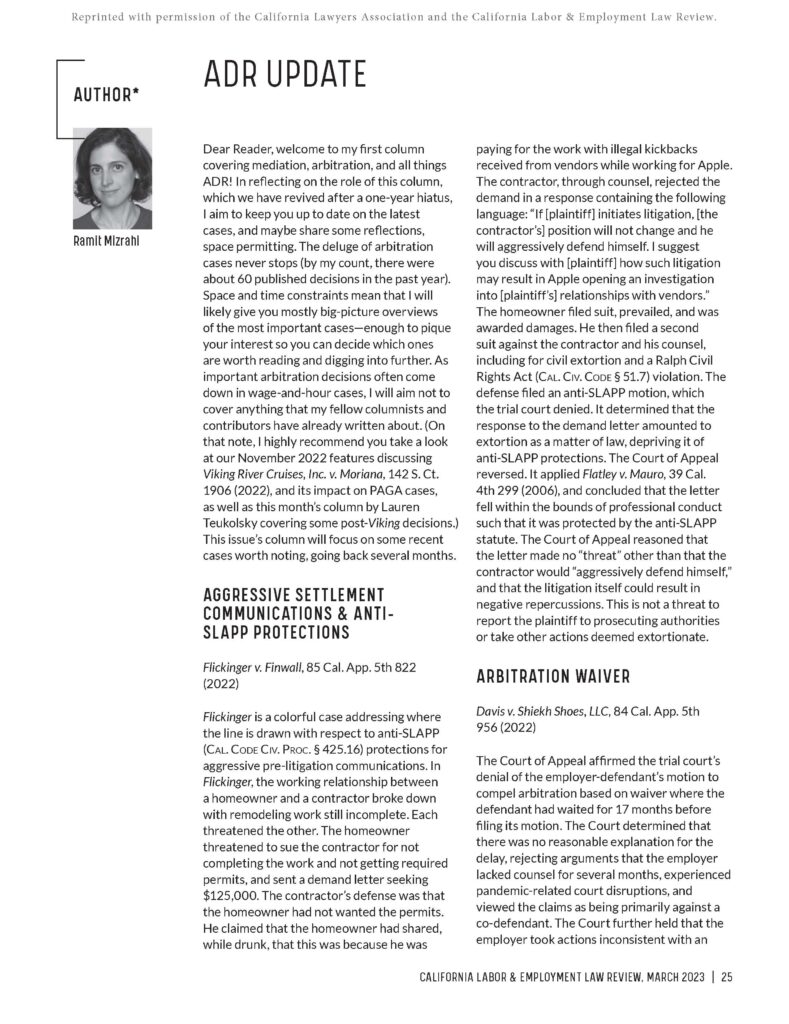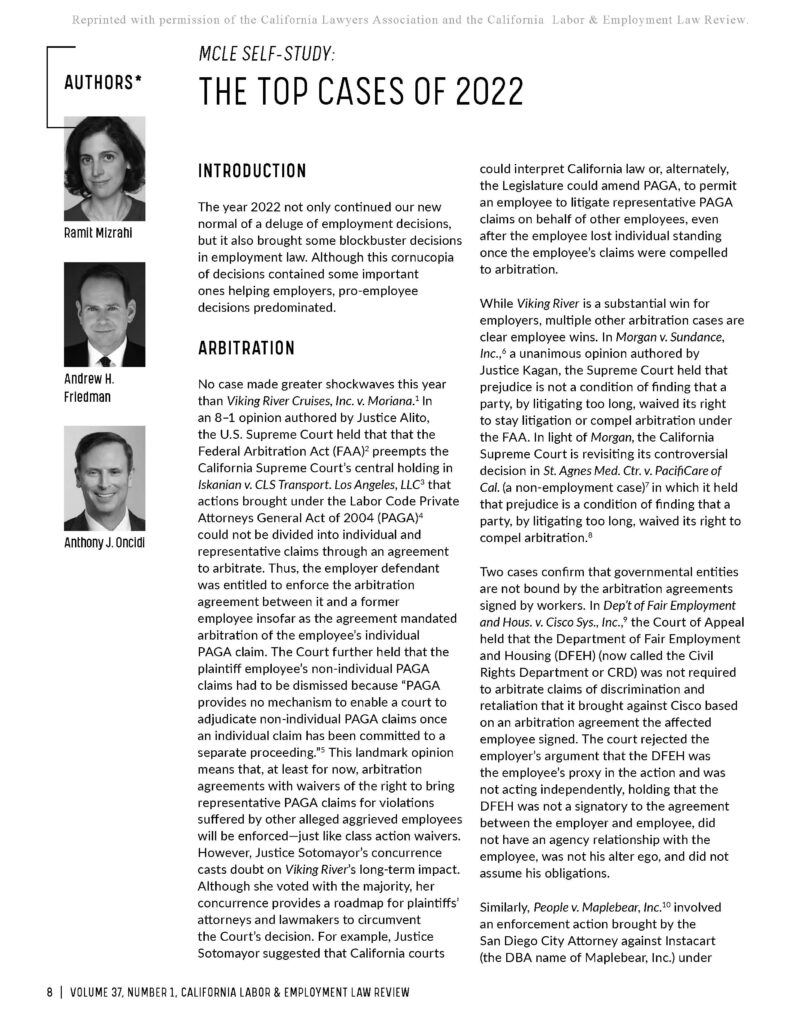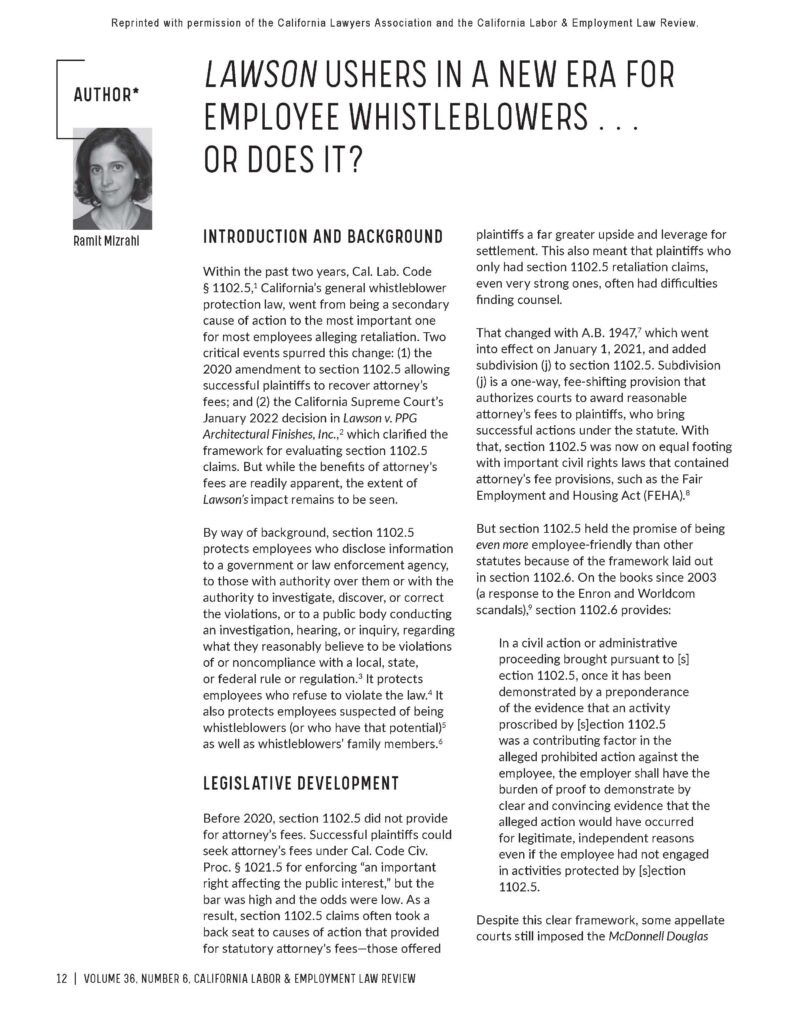-
Don’t we all wish we could share with our younger selves the wisdom of our experiences? As an employment mediator, I see what helps lawyers get better outcomes for their clients. While I can’t speak to my past self, I share these insights here. Click on the below image to read it in full.
Originally published in the Daily Journal on May 22, 2025.
-

-
The cover of the January 2025 issue of the California Lawyers Association’s Labor & Employment Law Review features an article authored by Ramit Mizrahi, Andrew Friedman, and Anthony Oncidi—The Top Employment Cases of 2024—that highlights the most important California state and federal employment cases from last year.
Click on the below image to read the article in full.
-
The cover of the January 2024 issue of the California Lawyers Association’s Labor & Employment Law Review features an article authored by Andrew Friedman, Ramit Mizrahi, and Anthony Oncidi—”The Top Employment Cases of 2023“—that highlights the most important California state and federal employment cases from last year.
Click on the below image to read the article in full.
-
31 Oct '23
Ramit Mizrahi’s November 2023 ADR Update in the California Labor & Employment Law Review has been published and can be found below.
-
01 Jul '23
Ramit Mizrahi’s July 2023 ADR Update in the California Labor & Employment Law Review has been published and can be found below.
-
04 Mar '23
Ramit Mizrahi has joined the California Labor & Employment Law Review as its latest columnist. She will be authoring its ADR Update column in every other issue (March, July, November), alternating with Hon. Michelle R. Rosenblatt (Ret.).
Her first column can be found below.
-

Ramit Mizrahi has been been selected by Super Lawyers® as one of the Top 100 Super Lawyers and Top 50 Women Super Lawyers in Southern California. It is the second year she has been selected to the Top 50 Women list.
Ms. Mizrahi has also been recognized in U.S News & World Report’s 2023 Edition of The Best Lawyers in America©.
-
The year 2022 not only continued our new normal of a deluge of employment decisions, but it also brought some blockbuster decisions in employment law.
The January 2023 issue of the California Lawyers Association’s Labor & Employment Law Review features an article authored by Ramit Mizrahi, Andrew Friedman, and Anthony Oncidi—”The Top Employment Cases of 2022“—that highlights the most important California state and federal employment cases from last year.
Click on the below image to read the article in full.
Ramit will also be speaking at the following continuing education program this month:
2022 New Employment Practitioner Conference, Employment Law 101
Program by: California Lawyers Association Labor and Employment Law Section
Date/Time: : Thursday, 1/19/22, 8:30-10 a.m.
Description: California provides employees with numerous protections that practitioners need to understand to provide effective representation and which employers need to know in order to be in compliance. In this module, our panelists will provide an overview of filing and defending against claims of discrimination, harassment, and retaliation provided by the Fair Employment & Housing Act, Title VII of the Civil Rights Act, and other key employment laws. The presentation will touch upon exhaustion of administrative remedies, the essential points of analysis for claims, recent changes to the law, and emerging trends and concerns.
-
Within the past two years, Labor Code § 1102.5, California’s general whistleblower protection law, went from being a secondary cause of action to the most important one for most employees alleging retaliation. Two critical events spurred this change: (1) the 2020 amendment to section 1102.5 allowing successful plaintiffs to recover attorney’s fees; and (2) the California Supreme Court’s January 2022 decision in Lawson v. PPG Architectural Finishes, Inc., 12 Cal. 5th 703 (2022), which clarified the framework for evaluating section 1102.5 claims. But while the benefits of attorney’s fees are readily apparent, the extent of Lawson’s impact remains to be seen.
In its November 2022 issue, the California Labor & Employment Law Review published an article by Ramit Mizrahi that examined all published and unpublished California and federal appellate decisions and federal district court cases that addressed Labor Code § 1102.5 claims post-Lawson. The results suggest that defendants continue to prevail on summary judgment, and some courts may be treating the first step in the sections 1102.5/1102.6 analysis as creating a heavier burden than the first step in the McDonnell Douglas test. If so, the benefits of section 1102.6 to plaintiffs may largely be neutralized.
Click below to read the article in full.

